Olympians praise new Beijing-Chongli high-speed railway
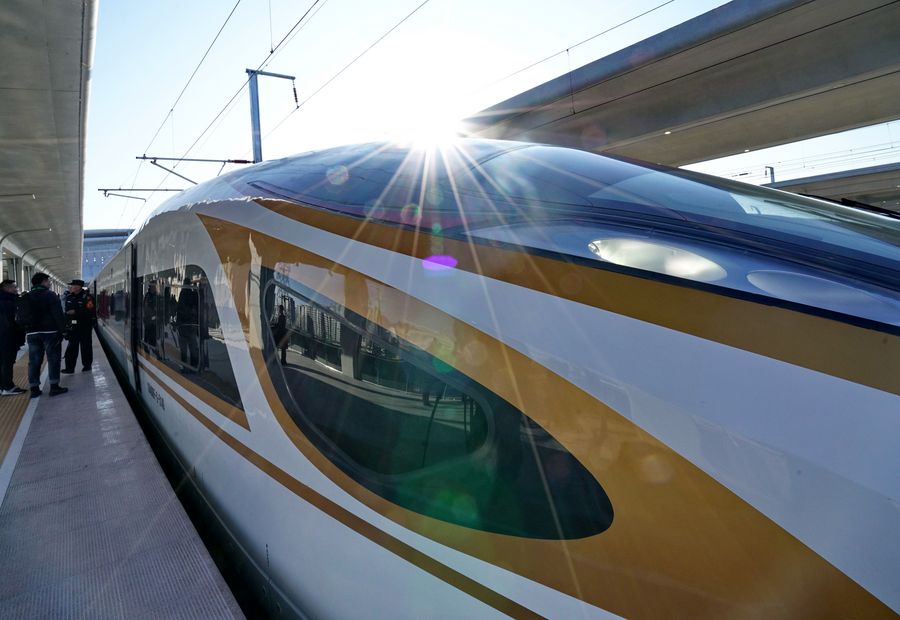
The high-speed train G2505 stops at Zhangjiakou Highspeed Railway Station in north China's Hebei province, Dec. 30, 2019. The high-speed railway line connecting Beijing and Zhangjiakou went into service on Monday. (Xinhua/Mu Yu)
BEIJING, Dec. 30 (Xinhua) -- Former Winter Olympic champion Yang Yang was one of the very first batch of passengers to enjoy the new Chongli railway, as the high-speed line connecting downtown Beijing with the ski venues of the 2022 Winter Olympics went into service on Monday.
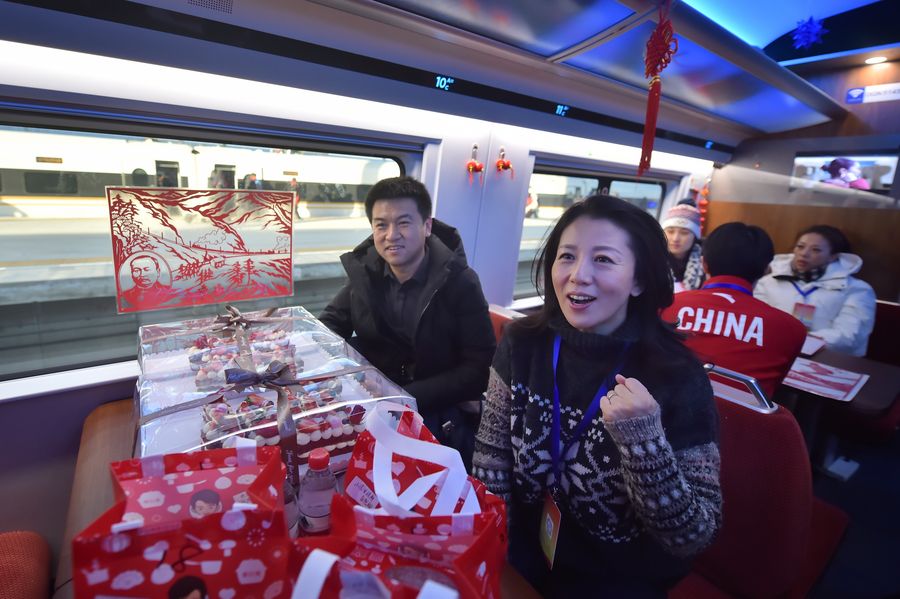
China's Winter Olympics gold medalist Yang Yang (Front) takes the G8811 high-speed train bound for Taizicheng Railway Station at Beijing North Railway Station in Beijing, capital of China, Dec. 30, 2019. (Xinhua/Peng Ziyang)
As chairwoman of the Athletes' Commission of the 2022 Games, Yang is well familiar with the journey between Beijing and the Chongli district that will co-host the Games. Such a journey typically takes over three and a half hours on the highway, or more than three hours by train. But with the newly-launched high-speed railway, Yang's trip on Monday was cut to just one hour.
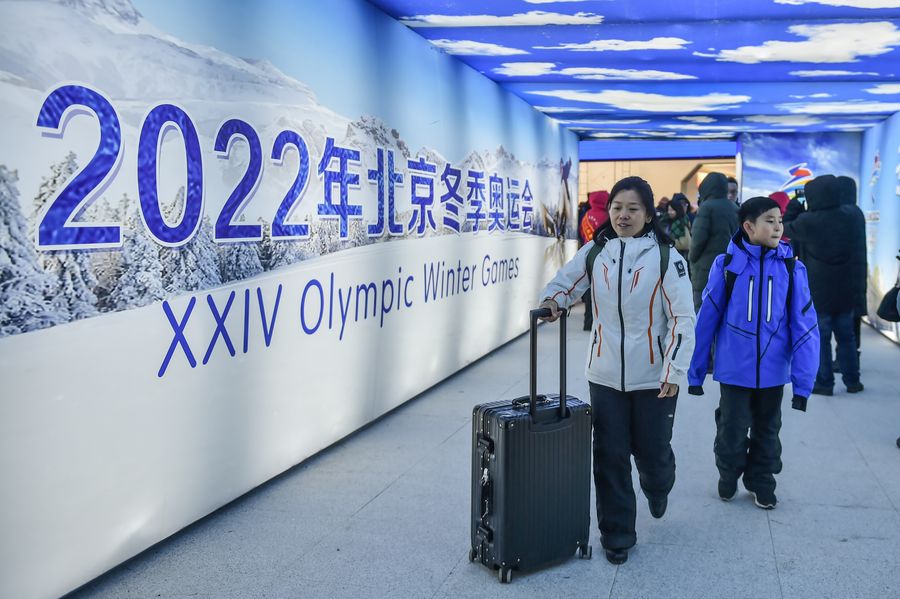
Passengers taking high-speed train G8811 arrive at Taizicheng Railway Station in Chongli District of Zhangjiakou, north China's Hebei Province, Dec. 30, 2019. (Xinhua/Peng Ziyang)
"Today we are going to Chongli to inspect the venues. Our initial plan was to rent a bus to go there. But about a week ago I heard the high-speed railway was going into operation. So we tried hard to get tickets, and luckily we were able to," said the 2002 short-track skating gold medalist, who was recently elected vice president of the World Anti-Doping Agency.
"The high-speed railway can improve the efficiency of our work, promote China's winter sports industry, and boost the ice and snow economy," she added.
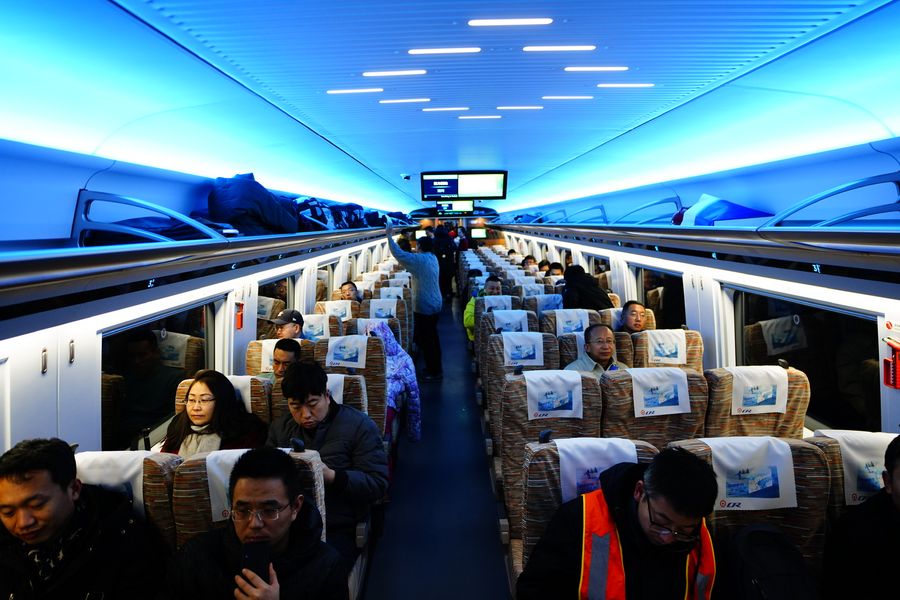
Passengers take the G8811 high-speed train bound for Taizicheng Railway Station running on the newly opened Beijing-Zhangjiakou high-speed railway, Dec. 30, 2019. (Xinhua/Xing Guangli)
Speed skating Olympic champion Zhang Hong was also excited to board the train. Heavy snow in her hometown of Harbin had seen her flight canceled, but the 31-year-old took an overnight train and managed to join up with her colleagues.
"It is really a special moment, especially for winter sports athletes, as the railway connects the Olympic sites of Beijing and Zhangjiakou, so I really didn't want to miss it," Zhang said.
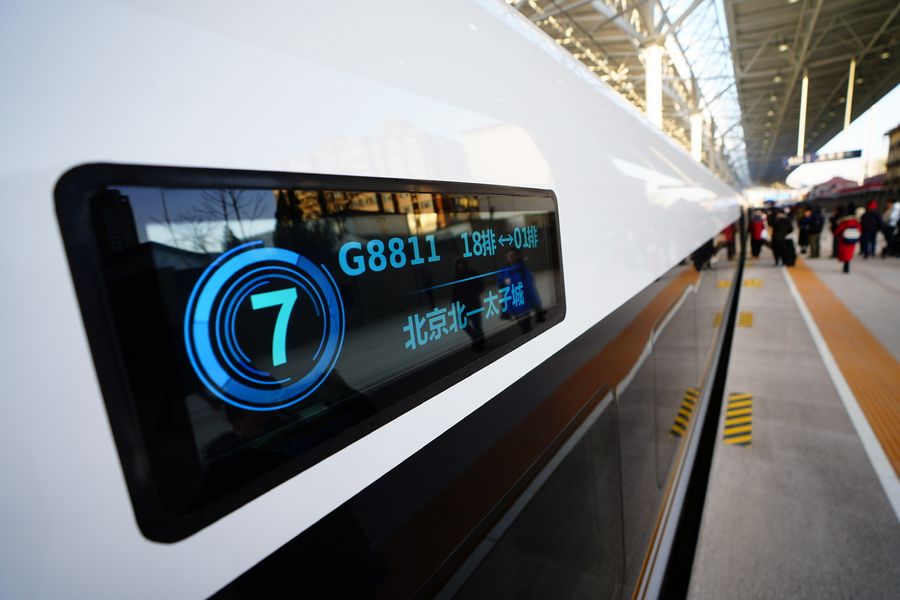
The G8811 high-speed train bound for Taizicheng Railway Station at Beijing North Railway Station in Beijing, capital of China, Dec. 30, 2019. (Xinhua/Xing Guangli)
The Beijing-Zhangjiakou high-speed railway has a total of ten stations and is 174km long, with the train capable of reaching speeds of 350 km/h. The 53km Chongli railway is a branch line of the Beijing-Zhangjiakou railway, with a maximum design speed of 250 km/h.
Taizicheng station is the terminus of the G8811 train Yang and Zhang took, and lies alongside the Winter Olympic village, as well as the competition venues for the cross-country skiing, ski jumping, Nordic combined and biathlon events. It is also just a 15-minute drive from the Secret Garden Ski Resort that will host the freestyle ski and snowboard events.
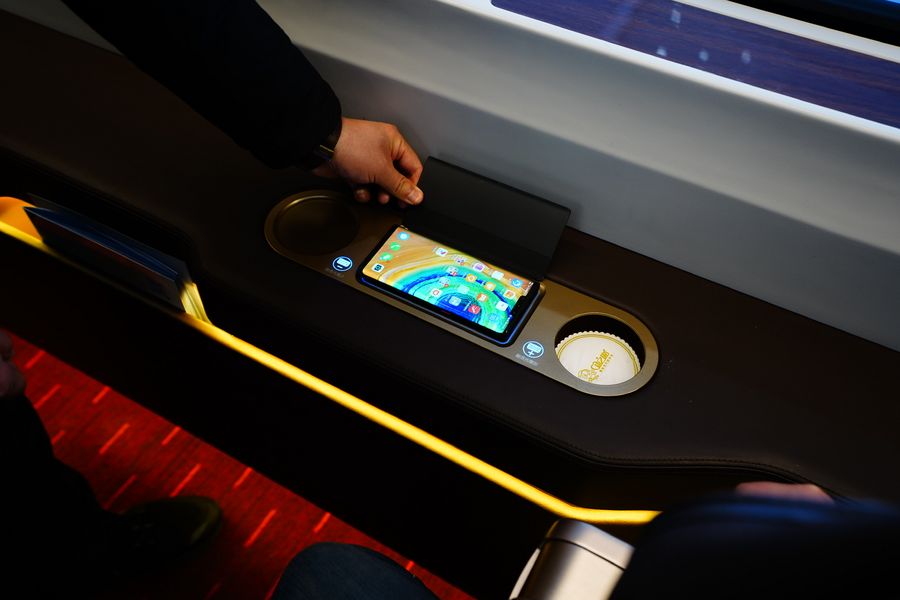
A passenger experiences the wireless charger for smartphones on the G8811 high-speed train bound for Taizicheng Railway Station running on the newly-opened Beijing-Zhangjiakou high-speed railway, Dec. 30, 2019. (Xinhua/Xing Guangli)
The trains on the Chongli line are equipped with features such as 5G, wireless charging and intelligent lighting, and with its destination firmly in mind, three of the eight carriages on the G8811 train have lockers for ski equipment and storage areas for large items of luggage.
As part of the country's well-developed high-speed railway network, the Beijing-Zhangjiakou railway will help trim the travel time between Beijing and Hohhot - capital city of Inner Mongolia - from over nine hours to around two hours. The travel time between Beijing and Datong in Shanxi Province will also be cut from six hours to around 90 minutes.
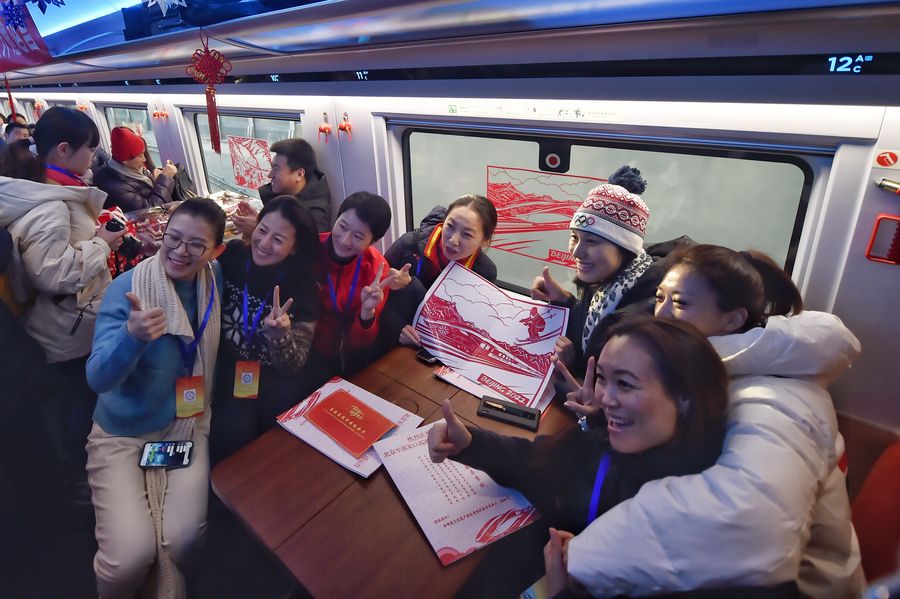
Passengers pose for photos on the G8811 high-speed train bound for Taizicheng Railway Station running on the newly opened Beijing-Zhangjiakou high-speed railway, Dec. 30, 2019. (Xinhua/Peng Ziyang)
"Buying a ticket for the first train on the Beijing-Zhangjiakou railway was very difficult. All the tickets were sold out within ten minutes. I was lucky to get one," said Fu Jiajun, a Beijing high school student and train enthusiast.
"The railway means a lot to me. My mother's hometown is Datong. With this new line, traveling back home will be much easier for her," Fu added.


![[Story in Beijing] Ke Makai: an "authentic Beijinger" from the UK_fororder_老外在北京1_副本](https://p2.cri.cn/M00/A0/4D/CqgNOl38X-6ABD3dAAAAAAAAAAA883.570x320.png)
![[Story in Beijing] Jong Mei: new things happening in Beijing everyday_fororder_中美_副本](https://p2.cri.cn/M00/96/FD/CqgNOl3l29GAaNhgAAAAAAAAAAA966.570x320.png)